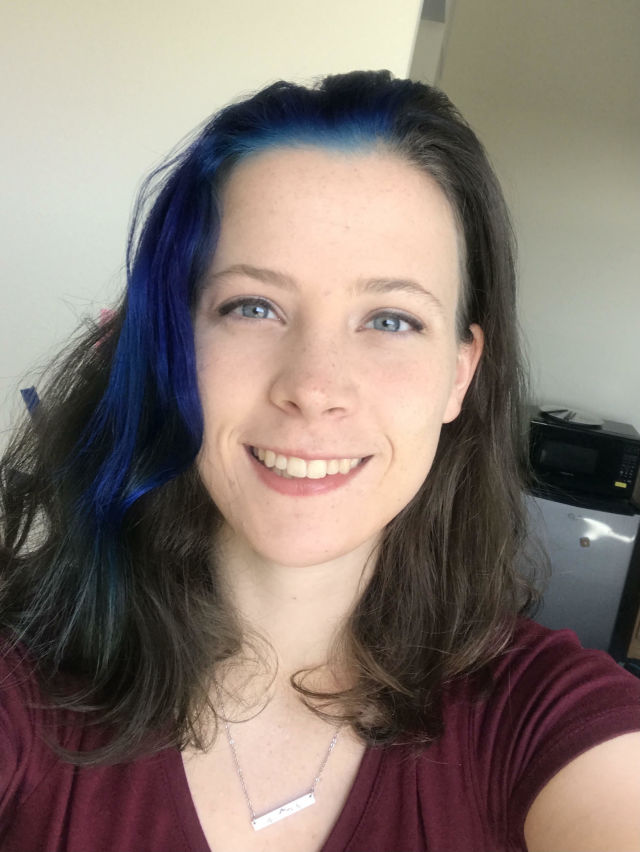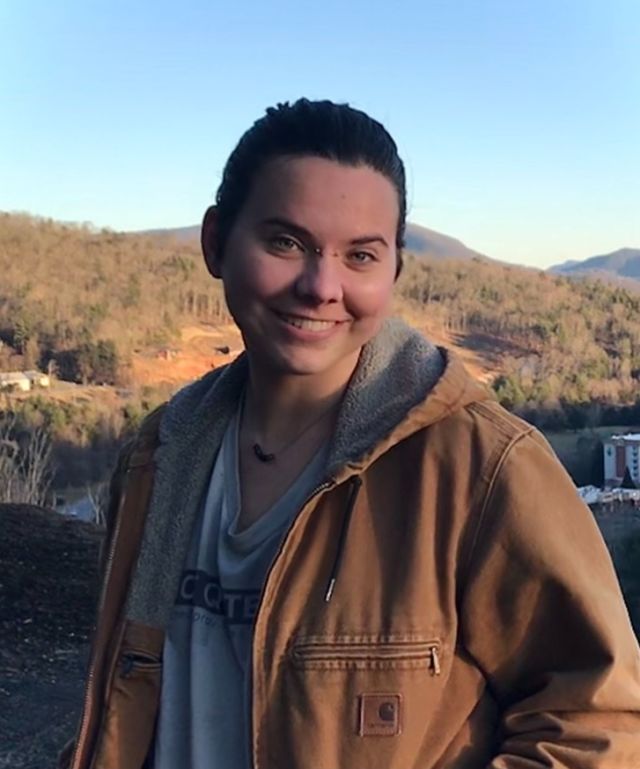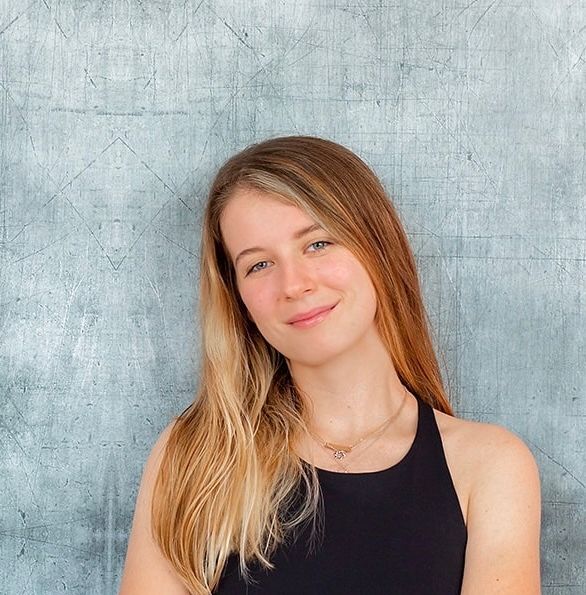
How the Pandemic Upended the Life of Sarasota's College Students
It's the middle of spring break, and you are living it up on your week-long vacation with friends and family. Suddenly, you receive the news that you are not allowed back on your college campus. In fact, no one is.
It's been a little more than one year since college students had their studies abruptly interrupted by the Covid-19 pandemic. While things have slowly returned to something resembling normal, with enforced mask-wearing and social distancing on campus, many aspects of higher education have changed. Local colleges are enforcing random Covid-19 testing, daily symptom checks and a hybrid model of learning. And, in turn, students have become more resilient and flexible with their time. But at what price?
"It was definitely confusing and shocking," says Arianna McAniff, a fourth-year motion design student at Ringling College of Art and Design.
McAniff was spending spring break with friends last year when she received an email notifying students that campus was being closed. She moved back with family in Apollo Beach, Florida, and opened her home to a few Ringling students without a place to stay. They created a makeshift classroom environment to help each other stay motivated.
"I had never taken online classes before," says McAniff. "It was difficult to adjust, and since I'm more extroverted, I prefer in-person contact at school."
With the help of Ringling's resources, McAniff was able to borrow a computer with special software that she could not access at home. Several other Ringling students faced similar challenges, needing to bring home materials that only the world-class art school's campus could provide. McAniff also continued speaking with potential employers, like Pixar, using the connections afforded each student. Despite this year's changes, she feels ready to enter the next chapter of life.

Arianna McAniff.
Image: Courtesy Photo
"I'm just hoping I'll get to go to work in a real office," she says.
In addition to disruptions on campus, the pandemic brought on international travel bans, leaving students from other countries separated from their families. More 1 million international students were hosted in the U.S. in the 2019-2020 school year.
Ringling student Emily Fromhage is about to graduate with a degree in illustration. She moved to the United States at age 15, and was planning to visit her family in Germany last summer. That option was shut down, but, thankfully, Fromhage had family in Pennsylvania with whom she could stay. Still, she couldn't help worrying about her family overseas.
"I knew that staying here was the best thing I could do to protect them," says Fromhage. "But I was still disappointed."
At the beginning of lockdown, Fromhage felt unmotivated, frustrated and sad. Many illustration classes at Ringling are focused around receiving in-person feedback from professors and peers. They also require live drawing sessions, which were impossible in an online setting. The professors did the best they could, Fromhage says, but "sometimes composition and lighting are just different on-screen."
To stay positive, Fromhage dove into her art and found comfort in small pleasures—like enjoying brief interactions with her neighbors while taking her dog for a walk. When she returned to campus in the fall, however, things didn't seem as hopeful.
"It felt like a ghost town," says Fromhage. She remembers the common areas were practically empty, save for the random maintenance man or security guard driving around in golf carts. All student activities had moved online, forcing kids to hole up in dorm rooms. As a resident advisor, Fromhage helped plan many virtual activities, but would find attendance significantly lower than before the pandemic.
"I know it's all inconvenient and painful, and might be for some time, but I appreciate the fact that we even get schooling in the way we do," says Fromhage.
Instead of a traditional spring break this year, Ringling opted for what it called "focus days." Classes were canceled so students could focus on homework, interviews with future employers and take care of themselves. The goal was to reduce travel and allow for an earlier summer break.
"I had a feeling we'd be gone for a long time," says Oceanna Krasny, a general studies major at New College of Florida. Krasny was one of the few in her social circle who believed this. Similar to Ringling, New College sent out a notice last year that students had to leave campus as soon as possible or not come back if they were away for spring break.
"My roommate and I came up with a plan to pack things up as quickly as possible," says Krasny.
Online classes were foreign to Krasny, save for a random driver's ed course ae took in high school. During lockdown, ae was taking welding and sculpting classes that required special materials, which the school provided. But it was hard to replicate assignments alone in aer room. (Oceanna uses the pronouns "ae" and "aer").

Oceanna Krasny.
Image: Courtesy Photo
"It felt like there was no separation between my academic and social life," says Krasny. "It all took place on screens." All classes, like most universities, were taking place over Zoom, the video chat platform that skyrocketed to fame last year. As of last September, more than 100,000 schools in 25 countries were using Zoom, and according to a recent study at Stanford University, "Zoom fatigue," has affected many.
For Krasny, relief came in the form of a poetry class ae took after ae returned to campus last fall.
"If it weren't for that class, I would not have felt as connected to my peers," ae says. "It helped me stay inspired."
Another New College student, Courtney Miller, found similar inspiration. As a computer science statistics major, she was more than happy to put a virtual spin on socialization. Miller is part of New College's computer science club, which created a Minecraft server for the popular online video game that students could use to chat while playing together. This helped keep her engaged with friends during the height of lockdown while she was back home with family in Miami.
"For some students, the idea of going back home could have been challenging," says Miller. "But it was comforting for me to be with family during a scary time."
Miller began an internship with Microsoft while she was away. The company sent her a computer and she caught a glimpse of hope imagining her career after college. While she'd prefer to work in-person, she knows the possibilities of remote careers are expanding. After graduation this spring, Miller will enter a Ph.D. program at Carnegie Mellon University in the fall.

Courtney Miller
Image: Courtesy Photo
Both Krasny and Miller were hired by New College as Covid college liaisons. They provide resources and information about Covid-19 to students, helping put minds at ease. Their work has led to the relocation of the campus' testing site to make it more accessible, enforcement of random testing and forums about how the virus spreads. They also offer reminders about social distancing and share facts about how far virus particles can travel through the air.
"I'm really proud of the effort our school has put into keeping everyone safe and accommodating us as we return," says Krasny. Both aer and Miller hope that the pandemic sheds light on the gaps traditional higher education systems have, especially for those with physical and mental disabilities, or those wishing to receive their education online while working.
At the University of South Florida's Sarasota-Manatee campus, mental health has become a top priority. All USF campuses have incorporated an online counseling platform called TogetherAll. Students struggling with mental health or daily stressors can converse anonymously with peers and professionals. More students have inquired about this type of service than in past years.
"This service is free to all students and is a platform we've needed for a while," says USF Sarasota-Manatee's student governor Josh Ghansiam. As student governor, Ghansiam has heard the outcry for help from students within his social circle and beyond. He credits his own positive outlook to spending time on his family's farm 10 miles east of Lakewood Ranch, where he could get out in the sunshine and nature during the past year. As a biology major, Ghansiam plans to apply to medical school this summer.
"I found out I was appointed governor right before lockdown began, and found it difficult to keep up with assignments and my new role," says Ghansiam. "But attending virtual government meetings did recharge my social battery, and made me feel good."
Ghansiam is one of few college students who has received both rounds of the Covid-19 vaccine. His current internship with the Sarasota clinic Covenant Research, which conducts patient clinical trials for liver disease, made him eligible to receive the vaccine in January. Not only was Ghansiam thrilled to get the vaccine for himself, but he was also aware of the people he'd be protecting at work and school.
"Working in research has given me a different perspective about vaccination, that we can do a lot to help our current situation," says Ghansiam. "For me, there was no second guessing or thinking about it."
Moving forward, Ghansiam, like many of the other students, is hopeful and emphasizes the strength that the current generation of college students has developed.
"Given how much we've endured, we've been set apart to be successful in our workplace and careers," says Ghansiam. "We keep pushing and have proven how resilient we are. Now that we're coming toward what seems like the light at the end of the tunnel with this pandemic, I believe college students will rise to the occasion and take all we've learned from the past year with us. I know that I've become a better learner. I've learned what's best for me as a human being and the kind of doctor I hope to become."